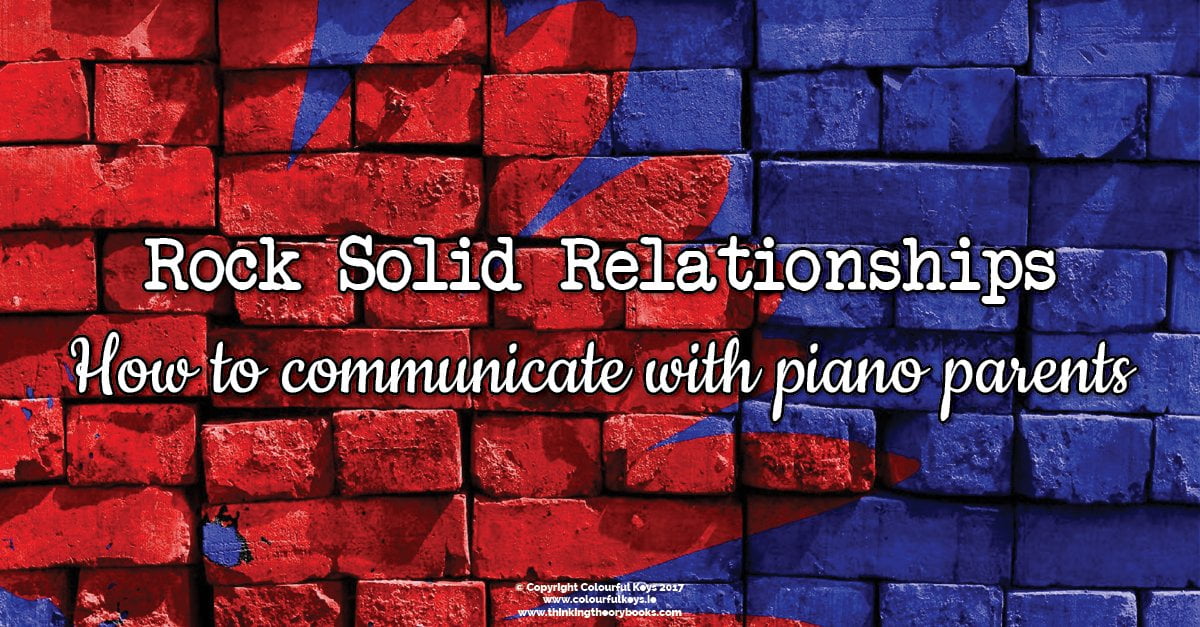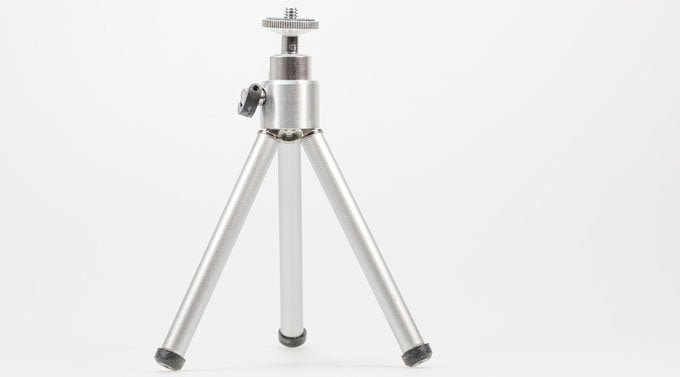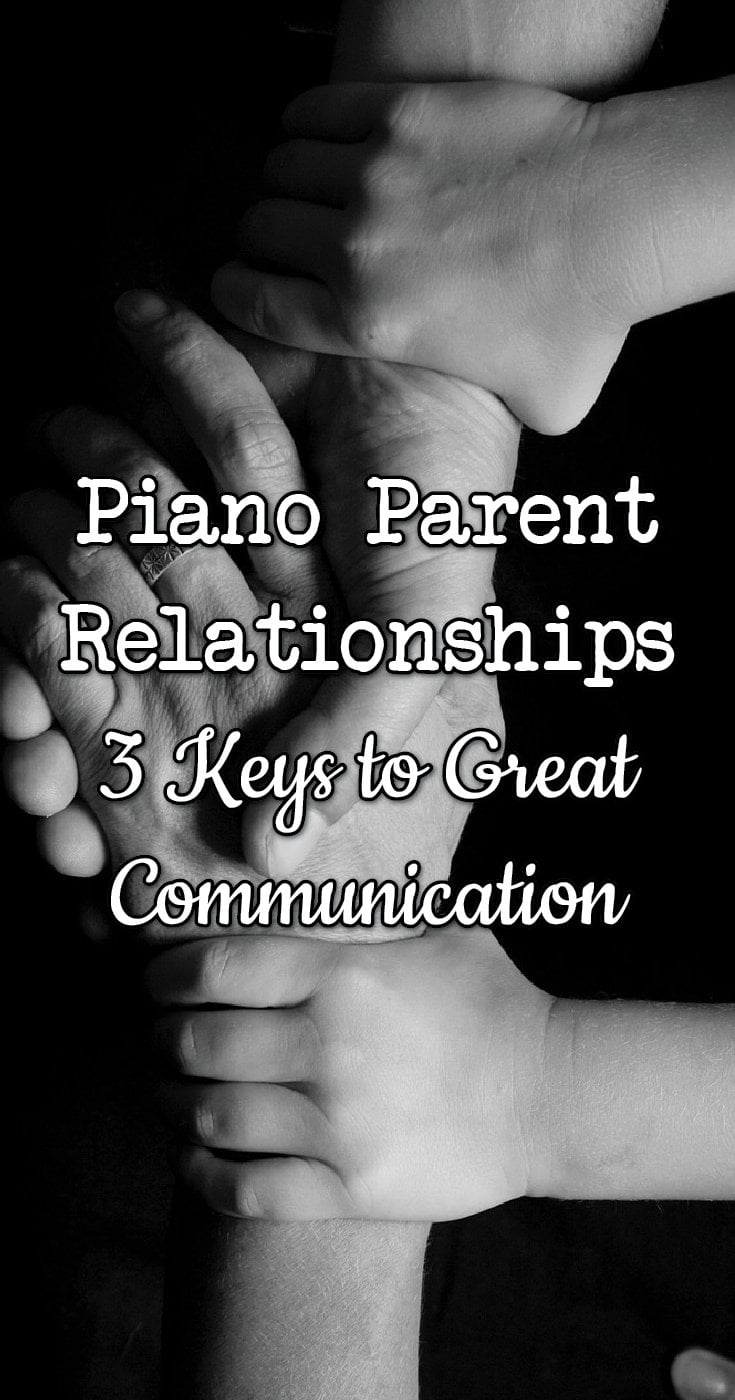Piano parents are your biggest allies. At least they can be, if you take the time to make great piano parent relationships in your studio.

Have you heard of the piano teaching tripod? That’s you, the student and the parents. There are three legs to great piano progress, and each of you has different responsibilities. If the parents aren’t on board, you’re going to be forever struggling to keep that tripod propped up.

Awesome piano parent relationships start as soon as a family joins your studio. In fact, it starts at the interview – before they’ve even signed up. Follow these three key relationship builders from the get-go to save yourself stress and set your student up for speedy progress at the keys.
1. Practical Studio Policies
The better and clearer your piano studio policies are the more likely you are to get off on the right foot. If you treat your piano studio like a business, and the commencement of lessons like a contract between you and your client (the parent), you’re less likely to have conflicts down the road.
Try to address all the common issues in your policies. You can’t account for everything – but you can make lay most things out for your piano parents.
Having said that, my policy is actually only one page long. This is enough to cover most areas of my studio and how it runs.
These are the subheads in my one page policy in case you’re curious:
- Payments
- Scheduling
- Missed lessons
- Punctuality
- Studio holidays
Your’s might be completely different. As a starting point, I suggest making a list of the questions you answer regularly throughout the year. Do people always ask about recital fees? Or make-up lessons? Or parking? Put that in there.
If your policy is running into two pages and beyond, try to cut it back. It can be very tempting when writing these kind of documents to fall into the trap of using overly formal language and long words. Resist this temptation. Get your point across in the least number of syllables you can – don’t get sucked into the land of jargonese.
Trust me, your piano parents will be more likely to read it.
Speaking of reading, once you have your policy, you need your parents to actually read it. While making it shorter makes this more likely, most still won’t read it. That’s just the truth.
It’s not their fault either. Think about how many things you sign and tick everyday without really reading them. There just isn’t any way we could read everything we’re “supposed” to.
So take the time to summarise your policy in your first lesson or interview with a prospective student. You don’t need to read it verbatim, but do explain each of the points conversationally, and leave time for questions. Time spent on this in the beginning is time and headaches saved in the long run.
2. Aligned Expectations
Your policy can cover the business aspects, but it can’t explain to a new parent what they should expect from piano lessons at your studio (if it does, it’s probably waaaay too long – please shorten it).

Parents also need to know about practice and progress expectations. They need to know what type of studio you run and what your goals are for your students.
- Are you a purely classical teacher?
- Do you value creativity and improvisation? Is this something you will take time to teach?
- Will the child be reading music right away?
- What kind of practice time do you expect? What’s the parents’ role in making this practice happen?
- If they practice this much what kind of progress can they expect?
- Do you put students in for piano exams? How long roughly until the first exam?
These questions should all be preempted at that first interview or trial lesson. If something is misaligned it’s much better to know now than find out when those expectations have already been missed (on either your side or the parents’).
This doesn’t have to be overwhelming for the parents, or for you. Take the time to prepare a little spiel that explains what kind of studio you run.
In short: make sure you’re a good fit and that your goals match up.
3. Clear Communication
So far we’ve mostly thought about the first meeting with a new piano parent. First impressions are key, but what happens after that? How do you continue to build this relationship?
Keep the lines of communication open. I see too many posts in forums about issues with piano parents that could’ve been completely avoided with more effective communication.
We’re all busy. I know it’s hard to keep up with all the parents in our studio – but it’s also essential to run a great piano teaching business.
Parents need to be kept in the loop. They need to know what you’re doing and what the plan is.
They DO NOT need to have input into every decision you make. You’re the expert and you make the decisions because you know what’s best. But if you leave your piano parents in the dark, they may not know there is a plan at all.
Many times when parents are insisting on an exam, a competition or a recital piece – it’s because they want to see progress. They’re investing in piano lessons and it’s a big commitment of time and money. They want to see that something is coming from it.

Whether you send email updates, call parents on the phone or send formal reports; you need to find a way that works for you and your community. Find a way to communicate that you can regularly do and that doesn’t cause misunderstandings. If people always take the wrong meaning from your emails, don’t use email. If you tend to get sidetracked in phone calls, then don’t use the phone.
Whatever you choose, make sure you update parents often about how their child is getting on. Be clear, concise and honest. If Susie is being held back by a lack of practice – tell them. Don’t assume they know, because they probably don’t. You’re the expert, they’re not.
Clear and regular communication will help you build strong piano parent relationships that can continue for many years to come.
How are your relationships with your piano parents?
Do you struggle in any of these key areas? Need help with writing your policies or communicating more clearly? Ask the teachers in the Vibrant Music Studio Teachers community on Facebook – we’d be happy to help you out.
